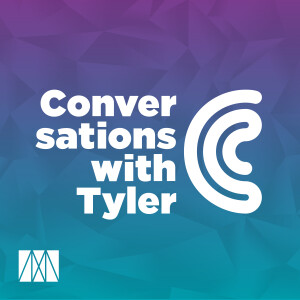
To Ted Gioia, music is a form of cloud storage for preserving human culture. And the real cultural conflict, he insists, is not between “high brow” and “low brow” music, but between the innovative and the formulaic. Imitation and repetition deaden musical culture—and he should know, since he listens to 3 hours of new music per day and over 1,000 newly released recordings in a year. His latest book covers the evolution of music from its origins in hunter-gatherer societies, to ancient Greece, to jazz, to its role in modern-day political protests such as those in Hong Kong. He joined Tyler to discuss the history and industry of music, including the reasons AI will never create the perfect songs, the strange relationship between outbreaks of disease and innovation, how the shift from record companies to Silicon Valley transformed incentive structures within the industry–and why that’s cause for concern, the vocal polyphony of Pygmy music, Bob Dylan’s Nobel prize, why input is underrated, his advice to aspiring music writers, the unsung female innovators of music history, how the Blues anticipated the sexual revolution, what Rene Girard’s mimetic theory can tell us about noisy restaurants, the reason he calls Sinatra the “Derrida of pop singing,” how to cultivate an excellent music taste, and why he loves Side B of Abbey Road.
Follow Ted on Twitter
Follow Tyler on Twitter
More CWT goodness:
More Episodes
 2019-05-08
2019-05-08
 2019-04-10
2019-04-10
 2019-03-27
2019-03-27
 2019-03-13
2019-03-13
 2018-12-19
2018-12-19
 2018-10-24
2018-10-24
Create your
podcast in
minutes
- Full-featured podcast site
- Unlimited storage and bandwidth
- Comprehensive podcast stats
- Distribute to Apple Podcasts, Spotify, and more
- Make money with your podcast
It is Free
- Privacy Policy
- Cookie Policy
- Terms of Use
- Consent Preferences
- Copyright © 2015-2024 Podbean.com




